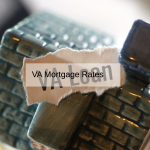U.S. Bank stands as one of the leading financial institutions in the United States, offering a comprehensive suite of banking and financial services, including mortgage lending. U.S. Bank's mortgage division is committed to providing accessible and competitive home financing solutions to its customers across the nation. This review aims to delve into U.S. Bank's mortgage offerings, outlining the diverse range of loan products available, eligibility requirements, application process, and comparison with other lenders. By exploring the various facets of U.S. Bank's mortgage services, borrowers can gain insights to make well-informed decisions regarding their home financing needs.
Loan products offered
U.S. Bank offers a wide types of mortgage loans products designed to cater to the varying needs and preferences of its customers. These include conventional fixed-rate mortgages, adjustable-rate mortgages (ARMs), FHA loans, VA loans, USDA loans, jumbo loans, and construction loans. Each type of mortgage product comes with its own set of features and benefits, enabling borrowers to choose the option that best aligns with their financial goals and homeownership aspirations. U.S. Bank strives to provide flexible and competitive loan solutions to help borrowers achieve their dream of homeownership.
Minimum credit score
The minimum credit score required to qualify for a mortgage with U.S. Bank may vary depending on the type of loan product and other factors. Typically, a higher credit score increases the likelihood of approval and may result in more favorable loan terms, such as lower interest rates and down payment requirements. U.S. Bank evaluates applicants' creditworthiness based on various factors, including their credit history, debt-to-income ratio, employment stability, and overall financial profile. Prospective borrowers should review the specific credit score requirements associated with each U.S. Bank mortgage product to determine eligibility.
State availability
U.S. Bank offers its mortgage services to eligible borrowers in various states across the United States. The availability of mortgage products may vary by state, and individuals interested in applying for a mortgage with U.S. Bank should inquire about the eligibility criteria based on their location. U.S. Bank is committed to serving communities nationwide and strives to make its mortgage offerings accessible to borrowers in regions where the bank operates. Prospective borrowers can explore U.S. Bank's website or contact a mortgage specialist for information regarding state availability and eligibility requirements.
Minimum down payment requirements
The minimum down payment required for a mortgage with U.S. Bank depends on various factors, including the type of loan product, the borrower's creditworthiness, and the purchase price of the home. Conventional mortgage programs typically require a down payment of at least 3% to 5% of the home's purchase price, while government-backed loans like FHA, VA, and USDA mortgage loans may offer lower down payment options for eligible borrowers. U.S. Bank understands the significance of affordability and provides transparent information regarding down payment requirements and options to assist borrowers in making informed decisions about their home financing needs.
Documentation
When applying for a mortgage with U.S. Bank, borrowers are required to submit various documents to verify their income, assets, employment status, and other relevant information. Commonly requested documents may include pay stubs, W-2 forms, tax returns, bank statements, asset statements, proof of identification, and documentation related to any additional sources of income or assets. U.S. Bank's experienced mortgage specialists guide borrowers through the documentation process, ensuring that all required paperwork is accurately completed and submitted in a timely manner. Providing thorough documentation is essential for expediting the mortgage application and approval process.
Costs and fees
Like most mortgage lenders, U.S. Bank charges certain costs and fees associated with obtaining a mortgage. These may include loan origination fees, appraisal fees, credit report fees, title insurance, closing costs, and prepaid expenses such as property taxes and homeowners insurance. The specific costs and fees associated with a U.S. Bank mortgage can vary based on factors such as the type of loan, loan amount, property location, and borrower's financial profile. U.S. Bank is committed to transparency and provides borrowers with detailed information regarding the various costs and fees associated with their mortgage transaction.
How to apply for a mortgage with U.S. Bank
The process of applying for a mortgage with U.S. Bank begins with prequalification, where borrowers can assess their eligibility and explore potential loan options based on their financial circumstances and homeownership goals. Prospective borrowers can apply for a mortgage with U.S. Bank by visiting a branch location, contacting a mortgage specialist, or completing an online application through the bank's website. During the application process, borrowers will need to provide personal and financial information and submit required documentation. U.S. Bank's dedicated mortgage team guides borrowers through each step of the application process, providing support and expertise to ensure a seamless and efficient experience.
What types of mortgages can I get through U.S. Bank?
U.S. Bank offers a diverse range of mortgage products to accommodate the unique needs and preferences of its customers. These include conventional fixed-rate mortgages, which offer stability with a consistent interest rate and monthly payment throughout the loan term. Adjustable-rate mortgages (ARMs) feature an initial fixed-rate period followed by periodic adjustments based on market conditions, providing potential flexibility for borrowers. FHA home loan requirements are insured by the Federal Housing Administration and may offer more flexible qualification requirements and down payment options for eligible borrowers. VA loans are available to eligible veterans, active-duty service members, and surviving spouses, offering competitive terms and no down payment requirement. USDA loans are designed to help low- to moderate-income borrowers in rural areas achieve homeownership with favorable terms and no down payment requirement. U.S. Bank's diverse mortgage offerings enable borrowers to select the option that best aligns with their financial goals and homeownership needs.
How U.S. Bank’s mortgage products compare to other lenders
When evaluating U.S. Bank's mortgage products against those offered by other lenders, several factors should be considered, including interest rates, loan terms, fees, eligibility requirements, and customer service. U.S. Bank distinguishes itself by prioritizing personalized service, competitive rates, and flexible loan options tailored to meet the unique needs of its customers. As a trusted mortgage lender, U.S. Bank is committed to providing exceptional service and support throughout the home buying process. Borrowers are encouraged to compare the features, benefits, and costs of U.S. Bank's mortgage products with those of other lenders to determine the best fit for their individual circumstances. Working with a trusted mortgage advisor can help borrowers navigate the decision-making process and identify the most suitable mortgage solution.
Frequently Asked Questions (FAQ) About U.S. Bank Mortgages
1. What types of mortgages does U.S. Bank offer?
U.S. Bank offers a variety of mortgage products tailored to meet diverse needs. These include conventional fixed-rate mortgages, adjustable-rate mortgages (ARMs), FHA loans, VA loans, USDA loans, jumbo loan mortgages rates, and construction loans.
2. What is the minimum credit score required to qualify for a U.S. Bank mortgage?
The minimum credit score required may vary based on the loan type and other factors. U.S. Bank evaluates applicants' creditworthiness based on various criteria including credit history, debt-to-income ratio, employment stability, and financial profile.
3. In which states is U.S. Bank's mortgage services available?
U.S. Bank offers mortgage services to eligible borrowers in various states across the United States. Prospective borrowers should check eligibility based on their location.
4. What are the minimum down payment requirements for U.S. Bank mortgages?
Minimum down payment requirements vary depending on the loan type, borrower's financial profile, and other factors. Conventional loans typically require at least 3-5% down, while government-backed loans like FHA, VA, and USDA loans may offer lower down payment options for eligible borrowers.
5. What documentation is required when applying for a U.S. Bank mortgage?
Applicants need to submit various documents such as pay stubs, tax returns, bank statements, identification, and proof of income/assets. U.S. Bank's mortgage specialists guide borrowers through the documentation process.
6. What costs and fees are associated with U.S. Bank mortgages?
Costs and fees may include loan origination fees, appraisal fees, credit report fees, title insurance, closing costs, and prepaid expenses like property taxes and insurance. Specific fees vary based on loan type, amount, and borrower's financial situation.
7. How can I apply for a mortgage with U.S. Bank?
Prospective borrowers can apply by visiting a branch, contacting a mortgage specialist, or completing an online application on the bank's website. During the process, applicants need to provide personal and financial information and submit required documentation.
8. What types of mortgages can I get through U.S. Bank?
U.S. Bank offers various options including fixed-rate, adjustable-rate, FHA, VA, USDA, jumbo, and construction loans. Borrowers can choose the option aligning with their financial goals and homeownership needs.
9. How do U.S. Bank’s mortgage products compare to other lenders?
U.S. Bank stands out with personalized service, competitive loan mortgage rates, and flexible loan options. Borrowers are encouraged to compare interest rates, terms, fees, eligibility requirements, and customer service with other lenders to find the best fit. Working with a mortgage advisor can facilitate decision-making.














